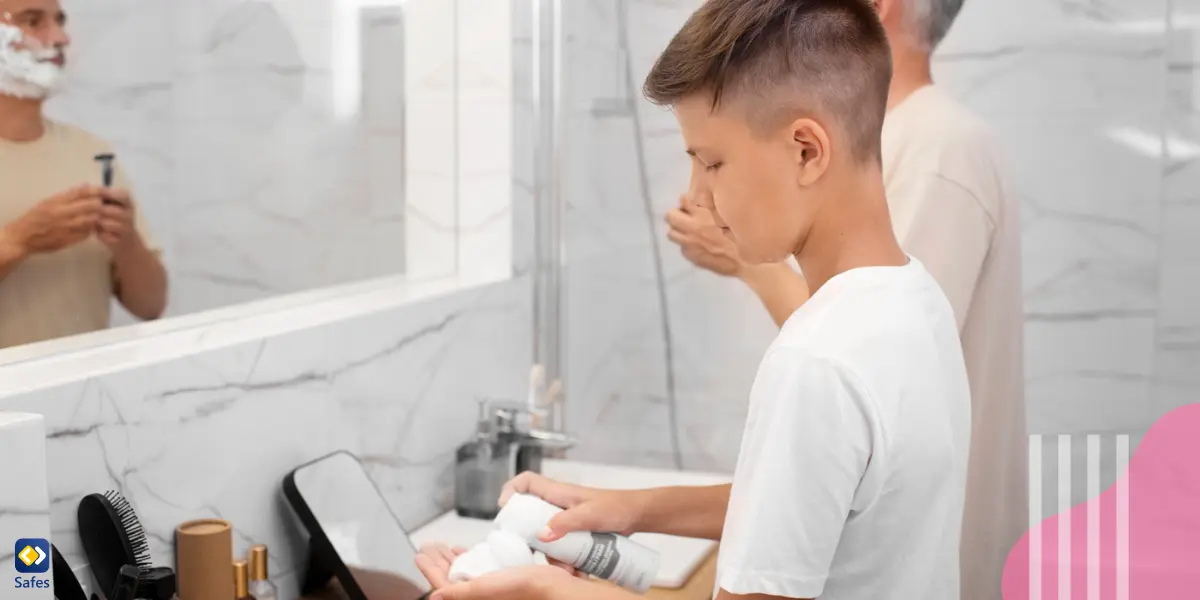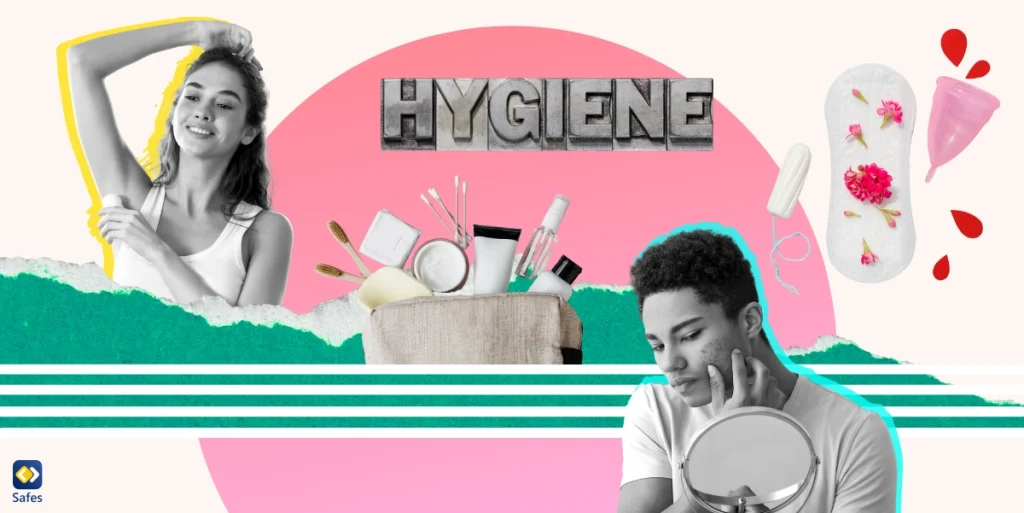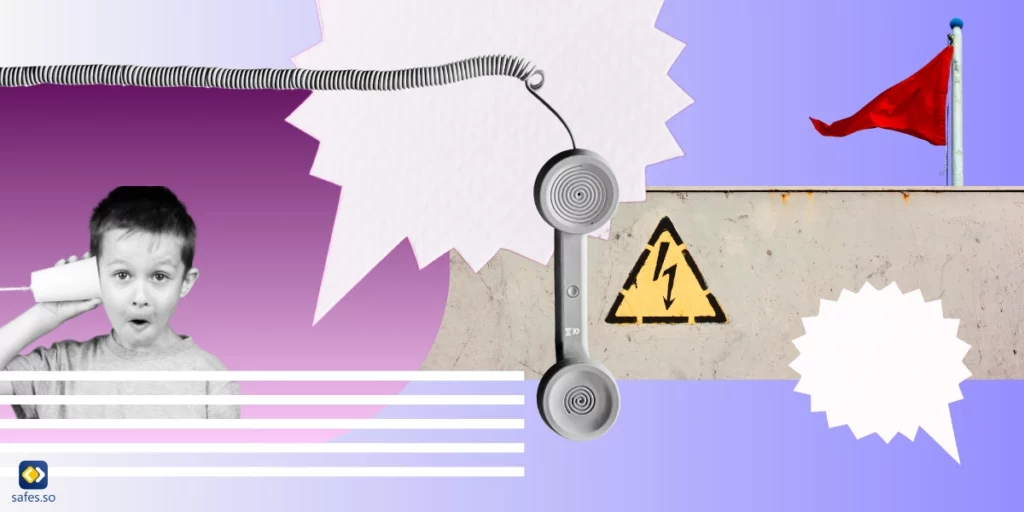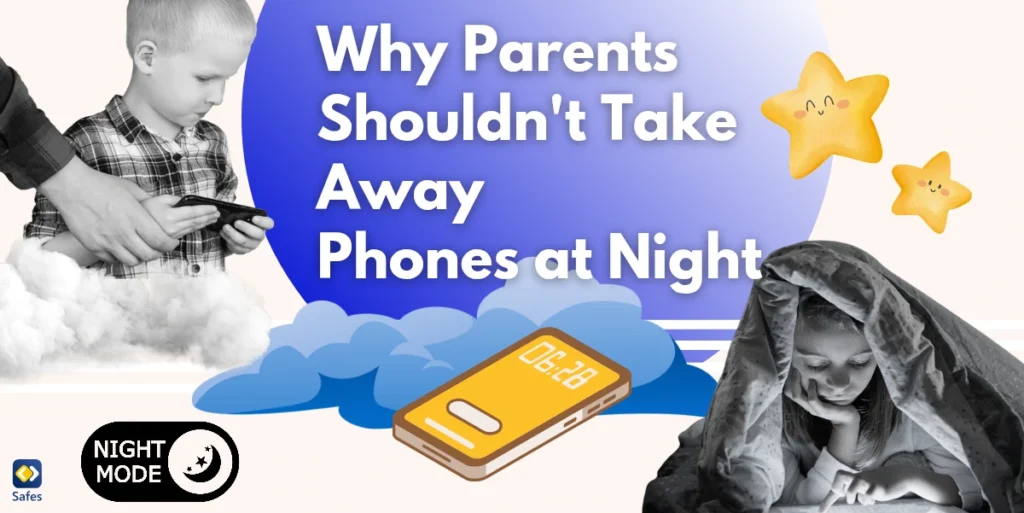As our children enter the most challenging age, adolescence, we need to pay extra attention to their hygiene and well-being. They may be complaining about their acne breakouts or resist regular showers, despite your insistence. It can sometimes feel like a never-ending battle. However, establishing good teen hygiene practices during the teenage years is crucial not only for physical health but also for self-confidence and social acceptance.
Download and Start Your Free Trial of the Safes Parental Control App
Teenagers need education to develop healthy habits. Some hygiene practices are crucial for a healthy life, such as regular showering, brushing teeth, washing hands, using deodorants, and skin care. According to studies, these habits are better learned during pre-teen ages. Having a hygiene checklist is one helpful way to help teens maintain a hygiene routine in their lives.
In this blog, we’ll talk about the essential hygiene habits every teen should know and provide practical tips for parents on how to effectively teach and encourage these habits. So, let’s see why teens need more hygiene practices during puberty.
Why Is It Important to Maintain Personal Hygiene During Puberty?
Maintaining personal hygiene during puberty is crucial for several reasons. First, during puberty, hormonal changes can lead to increased activity of sweat and oil glands in the skin. Sweat, along with natural oils produced by the skin, creates an environment leading to bacterial and fungal growth. Regular bathing with soap helps remove these substances and reduces the risk of skin infections. Moreover, proper cleansing of the skin helps remove excess sebum and dead cells resulting from increasing androgen hormones.
Second, apocrine sweat glands become more active during puberty. They secrete a milky fluid that contains lipids and proteins. Bacteria on the skin break down these compounds, producing organic compounds responsible for body odor. Regular bathing with antibacterial soap helps reduce the population of odor-producing bacteria and control body odor.
Adolescence is a period of heightened self-awareness and social interaction. Maintaining good personal hygiene can enhance self-esteem and confidence, positively influencing mental health outcomes. On the other hand, poor hygiene practices may lead to social issues among teenagers, bullying, and negative self-perception. It can all potentially cause anxiety and depression during adolescence.

Why Won’t My Teen Shower?
Based on the findings of an article by a group of scientists, including Pramod Singh, teenagers may resist taking regular showers due to the following reasons:
- Laziness
- Lack of proper education
- Lack of time management for teens
- Unreliable water supply
Furthermore, parents’ attitudes and behaviors toward hygiene can influence their teen’s habits. If parents prioritize personal hygiene and take regular showers, teens are more likely to adopt similar habits. The previously mentioned article, An Assessment of Personal Hygiene Practices Among Young Adults, also suggests some ways to put personal hygiene into practice, such as education programs to improve healthcare through workshops and public campaigns.
What Are the Hygiene Basics Every Teenager Should Know?
Every teenager should be aware of hygiene basics. They will set them up for a lifetime of good habits and help them maintain their health and well-being. Hygiene for teens has several basics that are explained below:
- Showering or Bathing: Teens should shower or bathe regularly, ideally daily, to remove sweat, oil, and bacteria from their skin.
- Hair Care: Washing hair regularly with shampoo helps keep it clean and prevents oil buildup and dandruff.
- Oral Hygiene: Brushing teeth twice a day, flossing daily, and using mouthwash are dental hygiene essentials for teens. They prevent cavities, gum disease, and bad breath.
- Hand Washing: Washing hands with soap and water for at least 20 seconds helps prevent the spread of germs and illnesses.
- Skin Care: Cleansing the face twice daily and using products suitable for their skin type can prevent acne and maintain healthy skin.
- Deodorant: if teens use deodorant or antiperspirant, it helps control body odor and sweat.
- Nail Care: To prevent the buildup of dirt and bacteria, they should keep nails clean and trimmed.
- Menstrual Hygiene: Girls should know how to manage their periods hygienically, including using pads, tampons, or menstrual cups and changing them regularly.
- Foot Care: Washing feet daily, drying them thoroughly, and wearing clean socks and shoes can prevent foot odor and fungal infections.
- Sleep Hygiene: Maintaining good sleep hygiene for teens, such as getting enough sleep each night, can lead to overall health and well-being.
Among all the hygiene activities for teens, sleep hygiene seems to be the one that is most neglected. It’s important to know that teenagers’ bodies need enough sleep, as well as clean skin and dental hygiene. You need to monitor your teen’s sleep hours and provide the best sleep aids for teenagers if necessary.
What Is a Teenage Hygiene Checklist?
This type of checklist is a helpful tool for both teenagers and parents to ensure that essential hygiene practices are being followed consistently. Many parents find it a helpful way to educate their teenagers about the importance of good hygiene practices and help them establish healthy habits for life. There are various types of hygiene checklists designed based on individuals’ conditions, cultures, routines, and more. To help you create one for your teen, here’s a sample you can check:
- Showering or Bathing:
- Shower or bathe daily, using soap and water.
- Wash hair with shampoo at least every other day or as needed.
- Use a mild cleanser for the face, washing twice daily.
- Oral Hygiene:
- Brush teeth twice a day, in the morning and before bed, using fluoride toothpaste.
- Floss teeth daily to remove food particles and plaque.
- Use mouthwash to freshen breath and kill bacteria.
- Hand Hygiene:
- Wash hands with soap and water for at least 20 seconds before eating or handling food.
- Make sure hands are clean using soap after using the bathroom.
- Clean hands with soap and sanitizer after touching animals.
- Wash hands after coughing, sneezing, or blowing the nose.
- Deodorant and Antiperspirant:
- Apply deodorant or antiperspirant daily, especially after showering or physical activity, to control body odor and sweating.
- Skin Care:
- Cleanse the skin regularly to remove dirt, oil, and sweat.
- Use moisturizer to keep skin hydrated and prevent dryness.
- Apply sunscreen before going outdoors to protect against sun damage.
- Nail Care:
- Keep nails trimmed and clean to prevent dirt and bacteria buildup.
- Avoid biting nails to prevent the spread of germs.
- Menstrual Hygiene (for girls):
- Change pads or tampons regularly, every 4-6 hours, during menstruation
- Dispose of menstrual products properly.
- Foot Care:
- Wash feet daily, especially between the toes, and dry thoroughly to prevent fungal infections.
- Wear clean socks and well-fitting shoes to prevent foot odor and blisters.
- Sleep Hygiene:
- Maintain a regular sleep schedule, aiming for 8-10 hours of sleep per night.
- Create a relaxing bedtime routine to promote restful sleep.

How do You Teach Youth about Hygiene?
First, you need to openly talk to them about why hygiene is crucial for them and discuss the benefits and consequences. Let them ask any questions and share any concerns they may have in mind. After that, it’s time to introduce the hygiene checklist and teach them how it works. Create a checklist based on their habits, preferences, and conditions to help them put it into practice.
To discover the best way of dealing with teens and hygiene, we can refer to an article about Teaching Children about Hygiene by Ana N. Barata and Tiago Maricoto. This study suggests that hygiene practices education is most helpful during childhood and pre-teen ages. During the research, healthcare professionals taught kids in schools about good hygiene habits. It helped them understand better how to stay healthy as they get older.
After these lessons, students’ hygiene habits improved, especially for younger kids. This suggests that starting hygiene education early is important for making a big impact. Moreover, doctors and nurses should talk to kids about hygiene when they come in for check-ups, especially kids who are 8 to 10 years old.
Tips to Educate Your Child about Good Hygiene for Teens
- Demonstrate good hygiene habits in your own daily routine.
- Introduce hygiene concepts to children at a young age and gradually build on them as they grow.
- Make learning fun using games, quizzes, or interactive videos that reinforce key concepts.
- Use visual aids, like charts or diagrams, to illustrate proper techniques for brushing teeth, washing hands, and other hygiene practices.
- Allow youth to take ownership of their hygiene routines by giving them autonomy to make choices and develop habits that work for them.
- Empower them to take responsibility for their own hygiene.
- Create a safe and non-judgmental environment where youth feel comfortable asking questions and discussing hygiene-related topics.
- Establish clear expectations for personal hygiene for teens and reinforce them consistently.
- Adapt your teaching approach to meet their individual needs and respect their cultural beliefs around hygiene.
Final Word
Maintaining good hygiene habits during adolescence is vital for both physical health and self-confidence. By instilling these habits early on, parents play a crucial role in shaping their teenagers’ overall well-being and preparing them for a lifetime of healthy living. Some tools like a hygiene checklist can constantly remind them of hygiene tips for teens and help them build a healthy and hygienic life, positively impacting their future.
Moreover, you may need more tools to ensure your teen’s well-being, like a tool to guarantee their safety in the online world. Sounds great, doesn’t it?! This is what Safes is all about. This parental control app offers parents the tools they need to monitor and manage their teens’ digital activities. This way, they can ensure their teens stay focused on important tasks like hygiene, while also protecting them from online dangers.
With features like app blocking, screen time management, and website filtering, Safes removes the need to use built-in parental control settings on devices, such as iPhone parental controls. So why not take the step towards a safer digital experience for your family with Safes? Download the app for Android and iOS now and benefit from our free trial option to test the app in advance.
Your Child’s Online Safety Starts Here
Every parent today needs a solution to manage screen time and keep their child safe online.
Without the right tools, digital risks and excessive screen time can impact children's well-being. Safes helps parents set healthy boundaries, monitor activity, and protect kids from online dangers—all with an easy-to-use app.
Take control of your child’s digital world. Learn more about Safes or download the app to start your free trial today!




